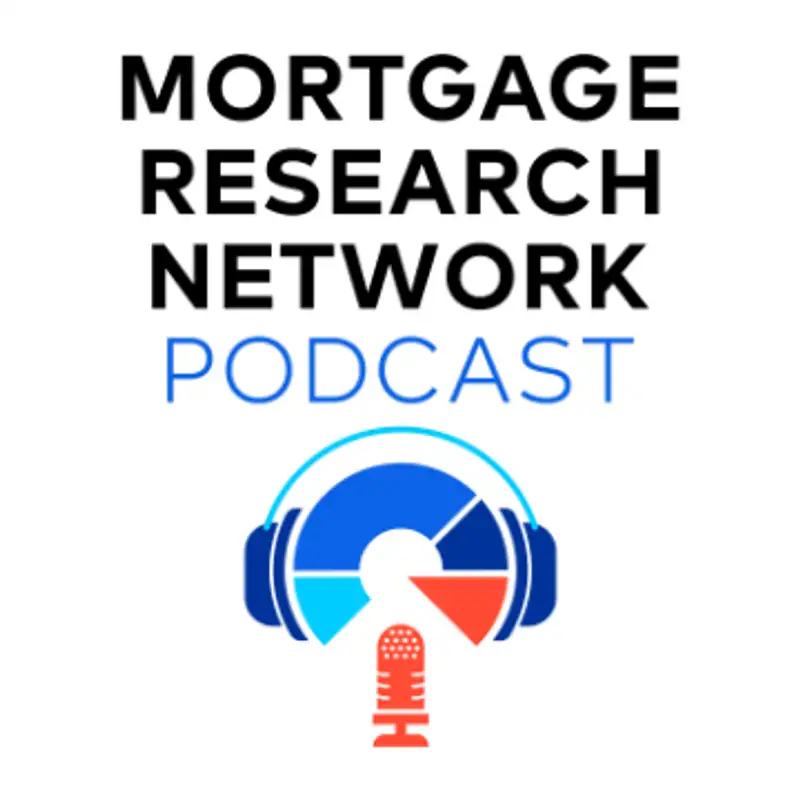Credit Score Showdown: Will Homebuyers Win the War?
Welcome to the Mortgage Research Network Podcast. Just a note that this podcast audio is AI-generated, but the article on which it's based was produced by people. Content is also reviewed for accuracy. And your hosts, Tim and Craig, are real people. And side note, we really apologize that our AI can't say FICO very well. Without further ado, let's get into today's topic.
I'm your host, Tim Lucas, editor of MortgageResearch.com and a former mortgage professional, and with me is Craig Berry, a mortgage originator with 25 years experience.
Glad to be here.
Today we're talking about a huge shift in how credit scoring for mortgages will happen going forward. In the past, a single company has controlled credit scores for mortgage applications, and helped determine whether millions of Americans could buy a home for decades. Well, that monopoly is finally coming to an end, and it could change everything about how we get mortgages in this country.
That's really interesting timing, especially with all the housing market challenges we're seeing. What exactly is changing here?
Well, lenders can now choose between a new credit scoring model called VantageScore and the traditional FICO scoring model. As long it's a conventional loan going to Fannie Mae or Freddie Mac, lenders will soon be able to use either model. And get this. FICO's stock price shot up more than 400% since 2021, partly because they had this virtual monopoly on mortgage credit scoring.
That's a big change. Up until now, there has been only one company determining credit scores for mortgages.
Exactly right. And what's fascinating is how these two companies look at creditworthiness completely differently. VantageScore will give you a score with just one month of credit history, while FICO traditionally wanted to see a much longer track record.
You know what's really interesting about this? The completely different reactions from these two companies.
Oh man, you should see their statements. FICO is practically predicting the apocalypse, calling it a "dangerous precedent" that will "undermine the safety and soundness" of the entire $12 trillion mortgage industry. Meanwhile VantageScore is throwing a celebration party.
That sounds like quite the contrast in perspectives. What's VantageScore saying specifically?
Well, they're claiming this could enable up to $1 trillion in high-quality mortgage loans. But here's what's really interesting. they're specifically highlighting how their model could help groups that traditionally struggled to get mortgages, like active military members, veterans, and young people just starting their credit journey.
So if we look at the bigger picture here, what does this mean for the average person trying to buy a home?
That's where it gets really interesting. Let's say someone applies for a mortgage but doesn't qualify using FICO scores. Now, the lender could run the same borrower through VantageScore's system. If they are approved with their VantageScore, they're good to go. The FHFA says this competition could lower closing costs for everyone.
But FICO seems to be suggesting the opposite, that this could actually raise prices for consumers, right?
Exactly, and here's their argument: they're saying VantageScore's more inclusive approach essentially means lowering critical credit scoring standards. They're particularly concerned about giving scores to people with just one month of credit history.
That makes me wonder. how do we know which company has the right approach?
Well, that's the fascinating part. we're about to witness a massive real-world experiment in credit scoring. The Department of Veterans Affairs has already been allowing both scoring models, so we have some precedent. But this is on a much larger scale. we're talking about 70% of all home loans, which is how much is supported by Fannie Mae and Freddie Mac.
You know what this reminds me of? When I hear stories from parents and grandparents about how there used to be only 3 TV channels. Cable introduced competition, and then streaming at Cable's lunch. But in the end, the consumer wins.
That's such a great analogy! And just like in that industry, we're seeing all these predictions about market instability. But here's what's particularly interesting. this change has actually been in the works since 2018. It wasn't some rushed decision.
So when does all this actually take effect?
Not quite yet. Fannie and Freddie's underwriting software systems need to be updated first. But what's really intriguing is how this might affect different communities differently. Some areas have more people with non-traditional credit histories or shorter credit records, so this change could have a bigger impact in those places.
Sounds like we're looking at a fundamental shift in how Americans might qualify for homeownership.
That's exactly right. And here's what we should all be watching for: Will this actually make homeownership more accessible while keeping the market stable? Or will FICO's warnings about increased risk prove correct? Either way, we're about to see the biggest change in mortgage qualifying in decades.
Well, I guess we'll have to wait and see how this experiment plays out.
Indeed we will. And in the meantime, it's going to be fascinating to watch how lenders adapt to having this choice, and whether this competition actually leads to better outcomes for homebuyers. After all, this isn't just about credit scores. it's about the American dream of homeownership becoming more accessible to millions of people. That's about all the time we have for this topic, but we go into even more detail on the site. To learn more, go to Mortgage research.com and type credit score war in the search bar on the homepage. We'll see you next time on the Mortgage Research Network Podcast.
